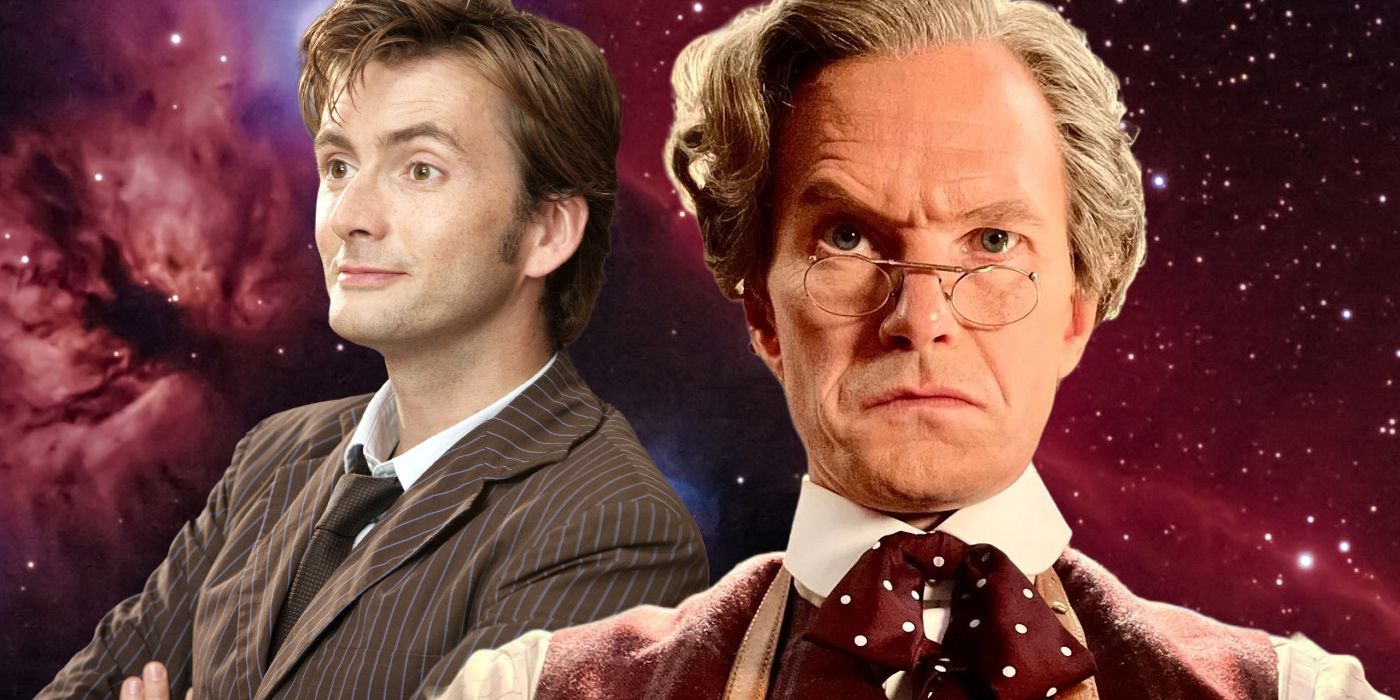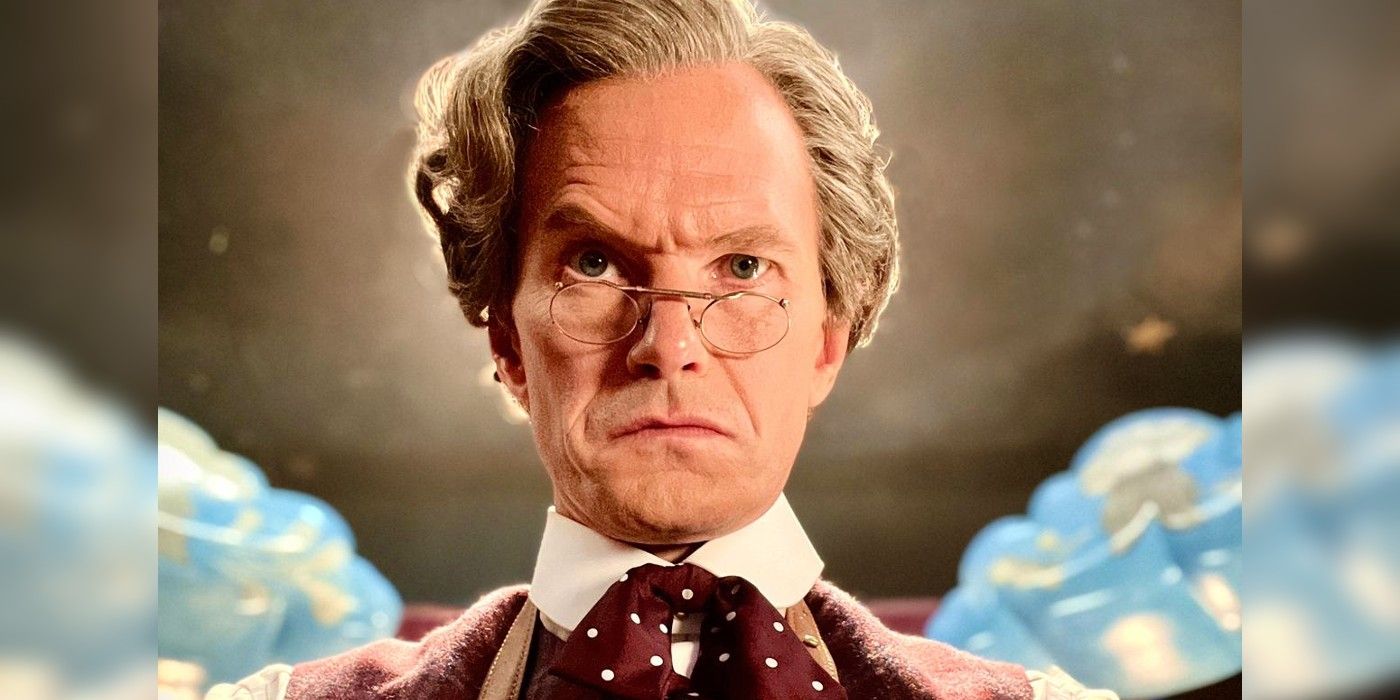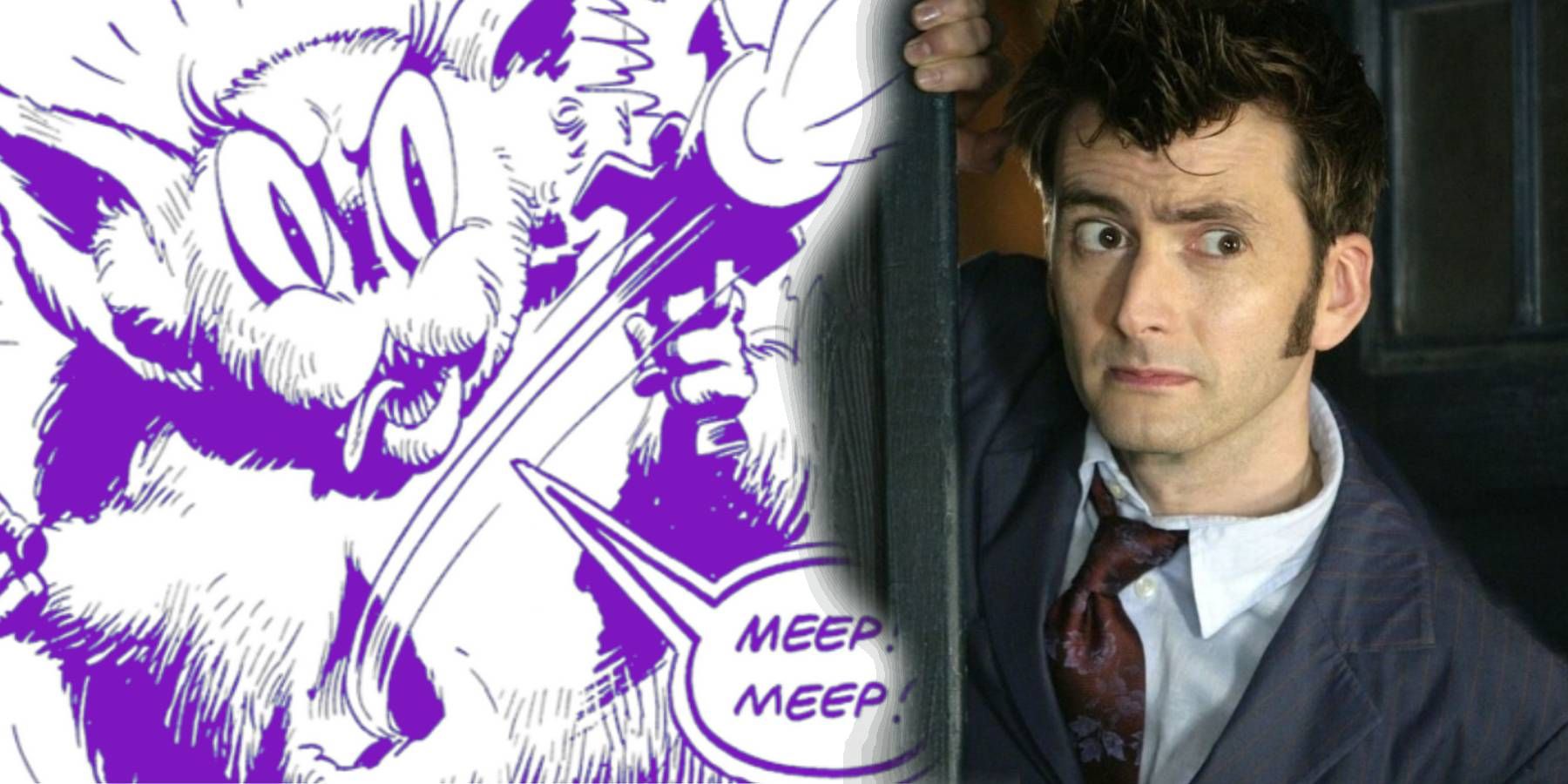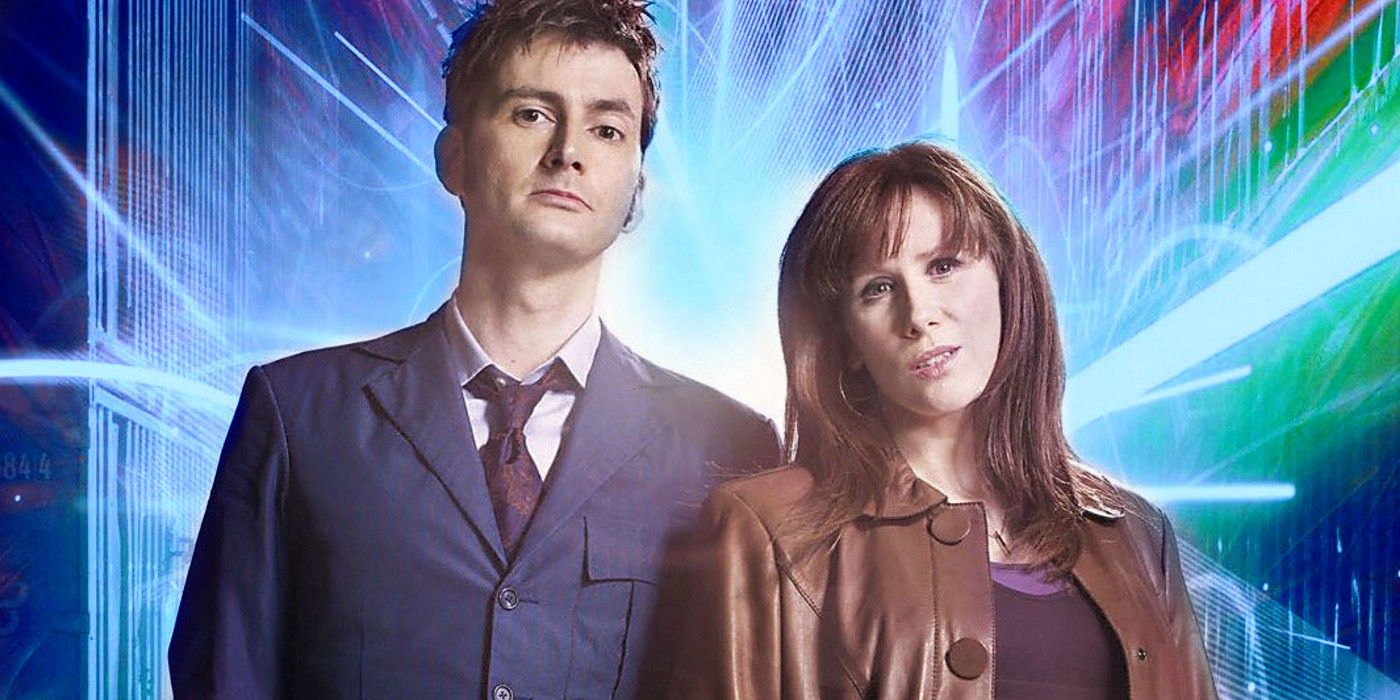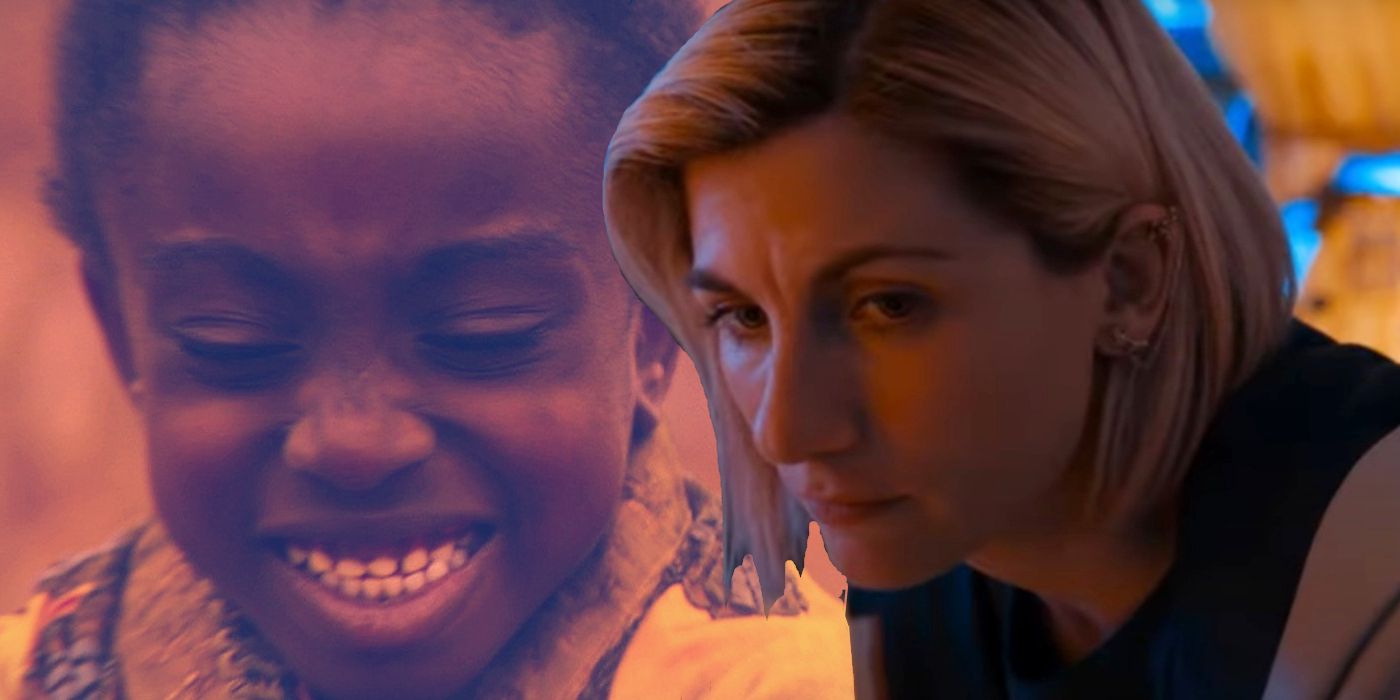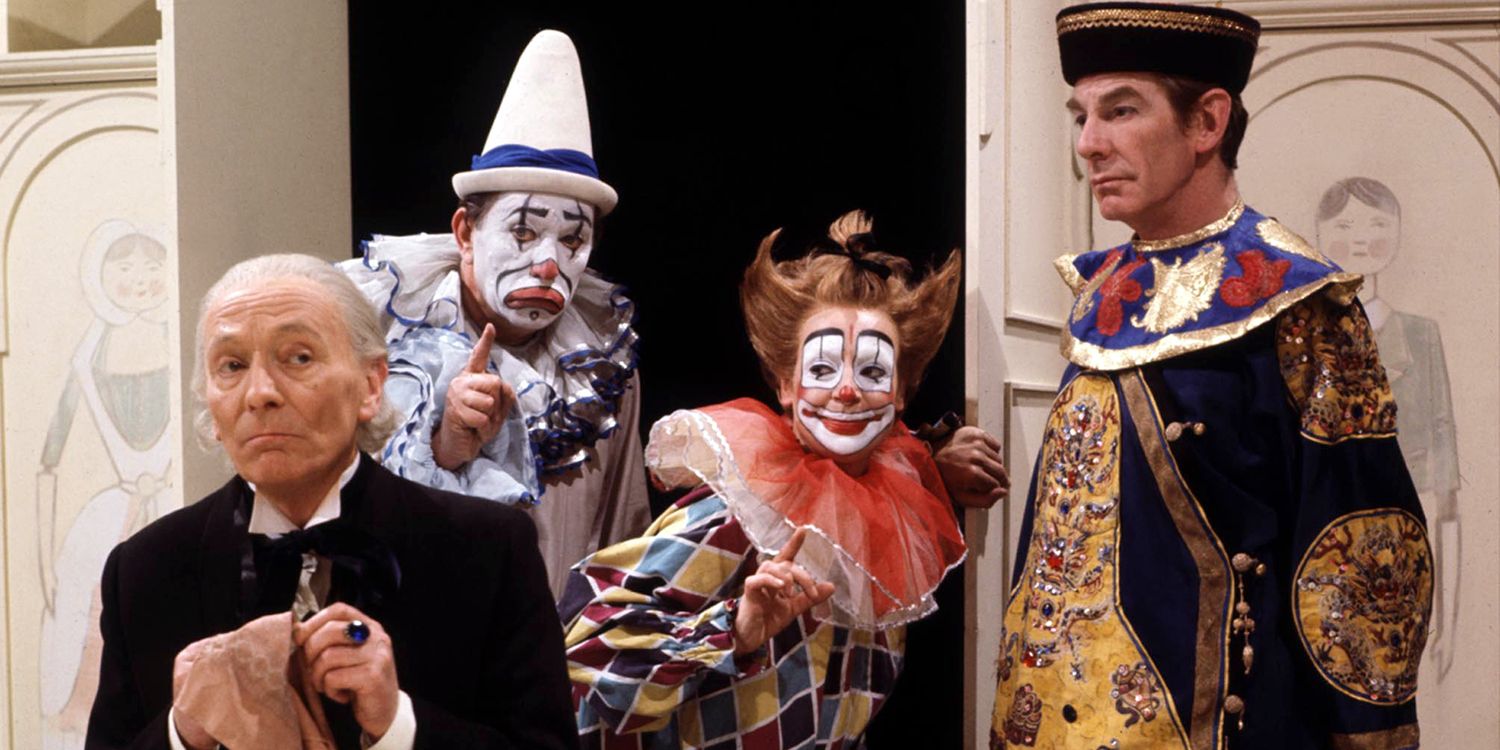The villain in Doctor Who's 60th anniversary specials - played by Neil Patrick Harris - is likely to be a classic villain called the Toymaker. Change is coming to Doctor Who. Jodie Whittaker's tenure as the Thirteenth Doctor will come to an end later this year, in a 90-minute episode that will celebrate the BBC's centenary. Current showrunner Chris Chibnall is departing as well, with Russell T. Davies - the man behind the 2005 relaunch - returning for Doctor Who's 60 year anniversary in 2023.
Davies is taking a very different approach to production than Chibnall, and Whovians are generally finding themselves welcome to head along to watch scenes being shot. The reduced secrecy naturally means details are certain to leak, and as a result Davies is allowing a series of major announcements that reveal some of the adventures in store. Those started with the fan-pleasing revelation that David Tennant and Catherine Tate are both returning as part of the celebrations, while Davies recently announced Neil Patrick Harris as a major villain.
There's intense speculation about the identity of Neil Patrick Harris' villain. Davies seems to have hinted he's an old foe of the Doctor's, which is naturally leading many to focus on the classic series as a possible source of inspiration. Naturally, some have suggested the Master; but that possibility seems far too obvious, and frankly a rather "safe" choice for Davies, who's sure to be rather more adventurous. Instead, the evidence is building that Harris will be playing a villain from 1966 - the Toymaker.
Doctor Who's Toymaker Explained
Played by Michael Gough, the Toymaker made his debut in the 1966 story "The Celestial Toymaker." The villain was a powerful, almost godlike, being who ruled his own dimension and had apparently crossed paths with the Doctor before in an unseen adventure; he forced visitors such as the Doctor to participate in insane games, and if they lost they would be trapped in his realm. There's a sense in which the Toymaker was one of Doctor Who's few multiversal stories, for it took the Doctor outside this universe for the first time. The Toymaker's origin was never explained, and tie-ins have offered a range of potential origins. Some have suggested he's an Elder God who predated this universe and somehow broke into it, and others as an avatar of one of the universe's fundamental forces, akin to the Guardians of Time.
Many viewers began suggesting Neil Patrick Harris could be playing the Toymaker as soon as they saw his distinctive costume, which includes the kinds of tools associated with a classic toymaker; the actor is also holding the same kind of arrogant, overbearing manner associated with Gough's Toymaker. Doctor Who set photos from Bristol soon showed what appeared to be the shop-front of a toy-shop, and one Whovian - Connor Mountford - soon shared photos of props he'd seen around the city, including a sign celebrating the "Toymaker of the Year." It really does look as though this suggestion is correct.
It's interesting to see the Toymaker apparently in the real world; in the original story, he lived in a dimension adjacent to this one, and in some tie-ins he's been portrayed as though he almost feared the universe he existed alongside. The new status quo may well be a result of the Time War - according to the first season story "The Unquiet Dead" the conflict was "invisible to smaller species but devastating to higher forms." It will be fascinating to see whether the Toymaker has retained his control of reality.
The Toymaker Would Explain The Doctor Who Special's Many Villains
Doctor Who's 60th anniversary features a range of monsters, including two who seem to be a match for the comics. One is Beep the Meep, a cute creature with a rapacious desire for conquest who became a firm fan-favorite; another are the Wrarth Warriors, aliens who pursued Beep the Meep in the comics. Russell T. Davies has always been a fan of Doctor Who's transmedia, and it's exciting to see him tap into the show's wider lore in this way. But the presence of the Toymaker as the main villain may even explain for their role, for in his original story anyone who is defeated in one of his games becomes his pawn. Both Beep the Meep and the Wrarth Warriors could be the Toymaker's tools, used as part of his game against the Doctor.
The Toymaker Could Explain David Tennant's Return
The Toymaker's reality-warping powers could even explain how David Tennant returns as the Doctor, because he has typically been portrayed as possessing the ability to warp reality - even rendering the First Doctor both invisible and intangible in "The Celestial Toymaker." Indeed, back in 1966 Doctor Who producer John Wiles hoped to use this story to replace William Hartnell as the Doctor, as he was clashing with Hartnell, whose health was beginning to fail (he was overruled by his bosses). There would therefore be a real irony in Russell T. Davies using the Toymaker to affect a regeneration story, creating an opportunity to bring back Tennant.
The Toymaker Could Even Tie In To The Timeless Child
Chibnall's era as Doctor Who showrunner has been dominated by the Timeless Child retcon, which revealed the Doctor is not a Time Lord at all; rather, they are a being known as the Timeless Child, originating from another universe and potentially predating this one. Chibnall has indicated he expects his ideas to be ignored by Davies, but that may not be the case; Davies has already supported the Timeless Child, seeing it as opening up new storytelling opportunities. In an introduction to a prequel for the story "Rose," he wrote: But now, the Thirteenth Doctor has shown us Doctors galore, with infinite possibilities. All Doctors exist. All stories are true." It would not, therefore, be a surprise to see Davies try to build something on the foundation of the Timeless Child, rather than reject it; indeed, his use of Beep the Meep and the Wrarth Warriors seems to fit with that idea, given he clearly sees the retcon as potentially absorbing all mediums into canon and continuity.
Doctor Who: Flux revealed the Timeless Child originates from another universe. If the Toymaker is indeed the main villain of the Doctor Who 60th anniversary special, then it's surely no coincidence Davies is reintroducing a classic multiversal villain as well. The Timeless Child retcon means the Toymaker could have a far longer history with the Doctor than had previously been realized, and perhaps even be aware of the Doctor's true origin. It will be fascinating to see whether Davies chooses to take this approach.
Can RTD Redeem the Toymaker?
The classic Doctor Who story "The Celestial Toymaker" is hardly one of the most popular. Behind-the-scenes drama meant aspects of the plot barely made sense; they were fixed in the novelization. Only one episode of the story survives, with the other three numbering among the many Doctor Who episodes lost from the BBC archives. What's more, there have been strong accusations that its portrayal of the Toymaker was racist, evoking "Yellow Peril" tropes. These complaints are probably exaggerated, although not for a pleasant reason; the sad truth is that 1960s (and even 1970s) Doctor Who had no issues with using yellow-face, and official photos show that approach was not taken with Michael Gough's Toymaker. Still, all this adds up to "The Celestial Toymaker" hardly being a fan-favorite - and it is, therefore, surprising to see the character return. Russell T. Davies is clearly avoiding the racial problems - Neil Patrick Harris' costume is more that of a traditional Toymaker. Hopefully, he will also make the Toymaker a rather more charismatic figure, one with a deeper vendetta against the Doctor as he returns to Doctor Who.

